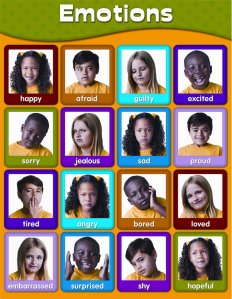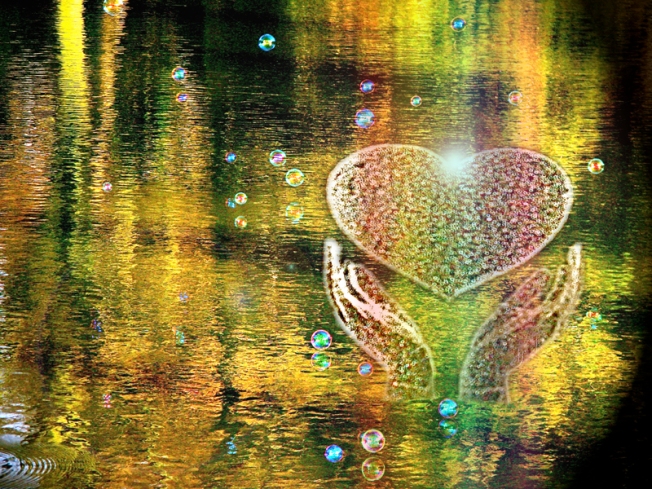I’ve come quite a long way over the last few years. In common with many, Life has lobbed one or two, (or three or four), entertaining situations my way of the kind that personal development gurus like to tell you are opportunities not barriers. You know. ‘What doesn’t kill you makes you stronger’. ‘There’s no such thing as a problem, only opportunities’. Of course. Yeah.
The implication here is that if you fail to become stronger, grow, develop into a better person, then you have wasted your chance. You’ve ignored your one and only call from the Fates to fulfil your destiny in true Hollywood style. Bookshelves, lecture halls, theatres and sales team award ceremonies are filled with tales of those special people who did make the grade. Who rose higher than the brick walls that surrounded their life and became better people, richer in self fulfilment and bank balance. These are the ones who really did find their way to streak skywards above the mess and make sometimes truly astounding recoveries and reversals of fortune.
We’re not all like that. We can’t all astound. We can’t all take on life’s adversities and achieve the spectacular. Think it through. If we did, it wouldn’t be astounding, would it? It would cease to be a spectacle. It would simply be something normal and everyday. Unworthy of comment.
My point is, there’s a massive difference between achieving the absolutely stunning, sufficient to make a career out of telling others how to achieve their own version of that very same stunning in the ‘if I can do it anybody can’ style. It’s the whole unwritten premise of that industry. If everybody could do it, it wouldn’t be stunning and sure as hell wouldn’t sell books or fill theatres.
Almost everybody out there is, well, normal and whilst exceptional circumstances absolutely can produce exceptional people, that potentiality for exception must pre-exist. Most of the time, the exceptional person rises from the overall population of everybody else. After all, we only need one heroic leader at a time. Let’s face it, what happens when you get two heroic leaders? Conflict and war, that’s what.
So if like me you find yourself, not on the margins of life, feeling that exceptional potentiality throbbing away whilst it waits for its own particular spark to set an unexpected train of events into motion ending in a pre-destined fulfilment of itself but rather in the mix with the bulk of humanity, wending your own way through life’s trials and tribulations, what then is the more usual result of being thrown up against the rocks of life’s more mundane coastline?
Personal experience leads me to believe that there’s all manner of anxiety, stress and pain that can result. The modern world, ill designed as it is to fit our evolutionary profile, keeps battering our psyche with problems that our instinctive reactions can no longer solve. Emergency protection mode is not a healthy place to live and yet we keep being thrown into it because our instincts tell us to fight it or run away. Much of the time we would be better off pondering quietly over an issue and think up, devise or just create a suitable solution.
The difficulty is of course, that when instinct kicks in we are driven by emotion and hormones, not conscious thought process. High emotion makes us stupid, deliberately so, so that we do actually run or fight rather than cogitate a possible solution whilst disaster roars it’s blood-stained teeth in our general direction. Given that most of us are not living in life or death situations, (depending on personal geography or neighbourhood), we’d be much better off if we could just lower the emotional content of our automatic reactions.
Much of what ails us is based around behaviours learned whilst young enough not to know better and so long ago that we no longer question it’s validity. Here’s a few typical ones; It’s just how it is; Stress is just part of modern life; You mustn’t say no because you can’t be seen as weak; Pain doesn’t go away, it’s there for life; No matter how hard you try, you can’t get pregnant; It’s all going wrong, why doesn’t someone fix it; It’s just how it is; Don’t have a go at me, it’s not my fault.
It’s just how it is.
Isn’t it?
The thought that came and slapped me round the face this week was that through all the difficulties of the last few years, I’ve (usually) been the one best equipped to carry the load, although when I couldn’t, Gill stepped up and took over even though it cost her. (Thank you, by the way). So as in my opinion, I could carry the load, I did. And although I can’t put my finger on when it happened I was brought up in the big boys don’t cry tradition, so I manfully suppressed all emotional reaction to what was being lobbed at us and held everything together. With the benefit of hindsight, that was exactly the wrong thing to do. It’s like keeping the lid down tight on the pressure cooker and reacting to too much heat by strapping the safety valve firmly shut and wondering why it exploded.
Anyway, the thought that floated past me was this. I did it, not because I thought I was stronger or more heroic than everyone else but because everyone else around me was more important than me. So there I was, manfully (big boys don’t cry, remember) holding up everyone else, keeping the lid on until the explosion. And then what? I had to get held up until someone else fell down. At which point, I dragged myself back to my feet to hold them up etc. spinning one of those vicious circles around and around until we all got too dizzy to think. Until life lobbed something at us that I couldn’t fix by being stronger than everyone around me.
So my journey over the past few years has taught me to gradually let the pressure off and find out what it all looks like when it’s stabilised and everyone around was allowed to deal with their own issues in their own way. Yes, we all still helped each other. Provided support where and when it was and still is needed. But like saplings, unless you’re allowed to deal with the buffeting of life, you never develop your strength and have to remain supported your whole live.
There I was, sitting at the kitchen table in mid late-night conversation with Gill, realising that I was mistakenly giving importance to those I love by the time-honoured method of devaluing my own importance. Classic. Put yourself at risk because you don’t deserve help and you don’t want to let them down.
Here’s the deal. If you give value to others by devaluing yourself, you haven’t actually given them anything. They aren’t better off. You’re just worse off. It really is important to tackle life from a standpoint of strength, with a sense of your own well-being and self-worth. That way, whenever help is needed, you are more ready and able to stand up and be counted.
Of course, given that we’re evolutionarily ill-equipped for our current lives, very often the person who needs the help turns out to be you. One of the key developmental stages in any therapeutic advance is a move from a fundamental lack of self-worth, to a point where you truly value your own identity, embracing your right to have a seat at the table.
Along with that comes responsibility. A move away from an external locus of control, whereby life’s problems should be fixed by someone else because let’ face it, it’s not your fault. A move towards an internal locus of control which simply tells you that whatever happens, however it happened, the responsibility for dealing with your life is entirely yours. Absolutely, you may need help. You may be offered or seek assistance. But the task falls to you.
You really can make it better, even if that turns out to be fixing things that can be fixed and learning to be content with the things that can’t, no matter how bad they might be.
And when you’ve leant that strength, that focussed source of being responsible for you, able and willing to make your own decisions, you’ll find that you’ve developed a centred power that enables you to help others reach their own place of certainty.
Selfish though it may seem at first, embrace that well-worn in-flight safety message: If you have to help someone put their oxygen mask on, make sure you have yours in place first.
After all, if you pass out from a lack of life’s oxygen, so will they. And then you’ve really let them down.
And if you find that you’re metaphorically gasping for air and struggling to get oxygen to those around you, Cognitive Hypnotherapy might just turn out to be the life-line you need. Just pull it down sharply and breathe normally.
Now that I’ve got my oxygen mask on, do you need help with yours?
_______________________________________________________
*This post originally appeared in Posts of Hypnotic Suggestion in April 2013

- that’ll wake you up
© Tony Burkinshaw 2013








































